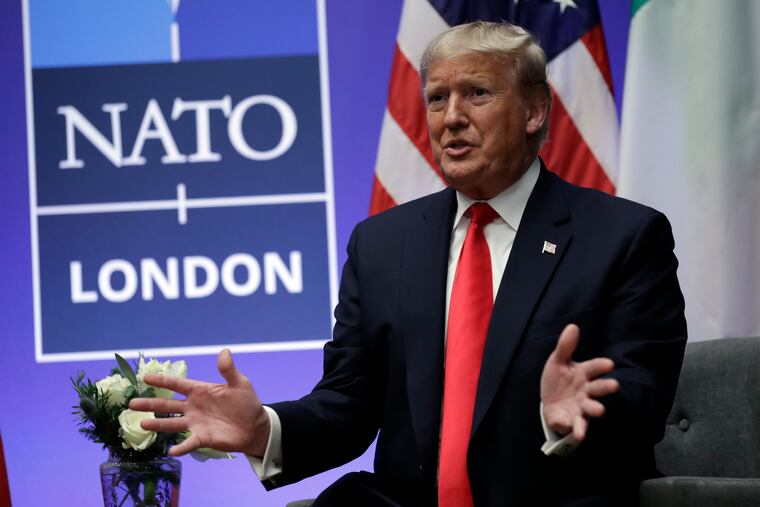Millennials are disillusioned with democracy and it’s up to educators to save future generations | Opinion
Schools and universities haven’t made a strong enough case for our political system to motivate young people to embrace it. It’s no wonder that they often echo our Cynic-in-Chief, questioning the legitimacy of democracy itself.

News flash: Two-thirds of millennials disapprove of President Trump. But you probably knew that already.
Here’s what you might not know: they’re also less likely to believe in democracy. At every turn, Trump has demonstrated his disdain for democratic norms and traditions. It turns out that growing numbers of young people agree with him, even when they reject Trump.
That's an educational problem, not just a political one. Over the past several decades, our schools and universities haven’t made a strong enough case for our system. It’s no wonder that young people often echo our Cynic-in-Chief, questioning the legitimacy of democracy itself.
In a 2017 study, political scientists Yascha Mounk and Roberto Stefan Foa showed that only 19 percent of millennials—that is, Americans born between 1981 and 1996—agreed with the statement that “military takeover is not legitimate in a democracy.” Meanwhile, one quarter agreed that “choosing leaders through free elections is unimportant.”
Other Americans exhibit growing cynicism about democracy, too, but not to the same degree. Just under half of older Americans agree that military takeover isn’t legitimate, and only 10 percent said that free elections are unimportant. Everyone is getting cynical, in short, but nobody is as cynical as millennials.
It’s easy to see why. In their short lifetimes, they have witnessed rising inequalities between rich and poor, ongoing environmental degradation, rampant school shootings, and the opiate crisis. And they’re not old enough to remember fascism or communism, the last ideological systems to pose existential threats to democracy.
So we shouldn’t be surprised that younger voters are also less likely to participate in it. True, millennial voting ratesrose sharply between the last two off-year elections, from 22 percent in 2014 to 42 percent in 2018. But only 30 percent of Gen Z Americans (those born after 1997) went to the polls in 2018. And all of these young people lagged well behind baby boomers and older citizens, who voted 64 percent of the time.
How do you persuade people who have soured on democracy to give it another go? Their teachers have to remind them that it has accomplished wonders, and that it can do so again.
In the early 19th century, democracy created our public schools. As America industrialized, democracy protected workers’ safety and their ability to organize unions. Democracy lifted us out of the Great Depression, then it helped us win World War Two. And democracy yielded civil rights for African-Americans, women, and other minority groups.
To be sure, democracy also brought us slavery, Jim Crow, and many other forms of oppression and discrimination. But here is the key point, which we need to highlight over and over again: democracy corrects itself. It is not perfect. But it is the best system ever devised by human beings to overcome their own errors.
Too many of our young people don’t see it that way. My students frequently tell me that Donald Trump is simply the culmination of 400 years of bigotry and ignorance. What did you expect, they ask, in a country founded on hatred and lies?
Alas, their teachers often echo that view. I’ve seen syllabi and classes built on the premise that America is irredeemable, because racism colors everything. Almost all of those courses are brought to you by people who despise Donald J. Trump. But they are doing his dirty work, reinforcing the idea that democracy is a kind of sham.
Or consider the New York Times’ admirable “1619 Project,” which has been assigned in classrooms around the country. It vividly describes how the legacies of slavery and segregation continue to blight America. But the project downplays the many ways that Americans have also fought against these forces. Young readers might be forgiven if they come away thinking that America is just the sum of its sins, repeated across every generation.
It isn’t. Democracy bequeathed us Donald J. Trump, but democracy can also turn him away. We need to teach about its triumphs, so future generations believe in its power to transform us. Anything less caves into Trump’s cynicism, all in the guise of resisting him.
Jonathan Zimmerman teaches education and history at the University of Pennsylvania. He is the author of “The Amateur Hour: A History of College Teaching in America,” which will be published next year by Johns Hopkins University Press.